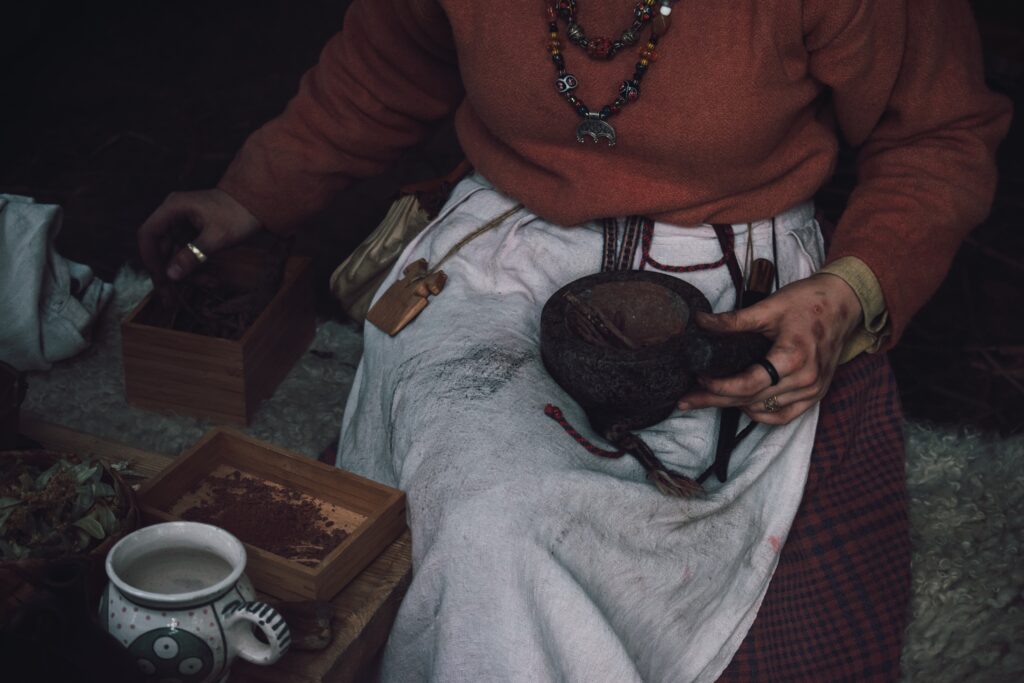Alchemy is another example of how, for millennia, humankind has been driven to search for longevity and immortality. From the Ancient World to the Middle Ages and the modern era, alchemists have tried to uncover the “Philosopher’s stone,” an alchemical substance that would be able to transmute metals, and the creation of an elixir of life that would heal diseases, rejuvenate, boost longevity, and ultimately grant immortality to all those brave enough to ingest it. But, what methods and tools did the alchemists use in their relentless mission to uncover eternal youth?
Nowadays, even though the quest for the elixir of life seems like something out of a Harry Potter book, throughout centuries it was taken seriously by alchemists and was the main goal of their daily work. To conduct these experiments, at least during the Middle Ages, an alchemist´s main tools consisted of: ancient manuscripts with beautiful allegorical illustrations and coded language; a laboratory set up with a furnace and with countless utensils and ingredients ranging from organic substances, to metals, and minerals; and paper and ink to keep track of their findings. As Tara E. Nummedal explains, the methods used by alchemists reveal that it was both a form of speculative thought that sought to shape matter and defeat death, and a practice based on experimentation.

As time went by, the tradition of alchemy became more complex and secretive while continuing its mission to find the secret of eternal youth. Likewise, over time, many myths emerged about legendary alchemists conquering death. Such was the case of St. Albertus Magnus, a 13th Century Dominican bishop and philosopher who supposedly handed the Philosopher´s stone to his pupil, Thomas de Aquinas; or of the most famous face of alchemy Nicolas Flamel, a 14th-century French scribe and manuscript seller, who allegedly achieved immortality but, as Roger Highfield mentioned, his connection to alchemy was fabricated during the late 17th century.
Aside from these legendary characters, many of the most important thinkers of that era were devoted to the quest for eternal youth. Roger Boyle, the father of modern chemistry, and Sir Isaac Newton were both alchemists who tried to create the elixir of life. The alchemical papers that Newton and Boyle left behind have recently been acknowledged as an important part of Western intellectual history and have been analyzed. For instance, an online project by Indiana University allows you to browse through Newton’s alchemy documents, which remained hidden-away until the 20th century, and witness reenactments of some of his recipes that aimed to uncover the Philosopher’s Stone.
Nowadays, the interest in studying the methods alchemists followed in their quest to defeat death is very much alive. This rekindled interest has triggered the unearthing of countless alchemical manuscripts that remained buried in private collections or were once undervalued and has also resulted in new experiments, attempting to recreate the recipes for the elixir of life.
As more knowledge of this once mysterious practice continues to emerge, up to this point we can confidently say that the millenary tradition of alchemy has shown us a way of thinking that has paved the way for modern chemistry, medicine and pharmacology, and demonstrates how we humans have always been, and continue to be, obsessed with living a longer and healthier life.
Moran, Bruce T. “Introduction.” Isis 102, no. 2 (2011): 300-04.
Nummedal, Tara E. “Words and Works in the History of Alchemy.” Isis 102, no. 2 (2011): 330-37.














